
A report by Microsoft showed that in the first half of 2025, Ukraine ranked fifth in the world and third in Europe among the countries that were most often targeted by cyber activity. In particular, almost one in ten victims in Europe were from Ukraine (9.5%).
“Despite enormous challenges, Ukraine is rapidly transforming and becoming a leader in cybersecurity. By accelerating the adoption of cloud technologies, applying AI to protect critical infrastructure, and stimulating innovation, the country is building digital resilience,” said Renate Strazdin, Microsoft’s technology director for the Northern Europe Multi-country Cluster (NTO Europe North Multi-country Cluster).
The report notes that more than 52% of cyberattacks with known motives are due to extortion and ransomware, while cyber espionage accounts for only 4%. In 80% of cases, the attackers’ goal is to steal data, which underscores the global nature of this threat.
The company notes that every day it processes more than 100 trillion security system signals, blocks approximately 4.5 million new attempts by malicious software to attack, analyzes 38 million cases of risk detection for user accounts, and scans 5 billion emails for malware and phishing threats.
Microsoft noted in the report that hospitals, schools, and local governments are increasingly becoming targets of cyberattacks due to their storage of confidential data and limited resources for cyber defense. This leads to delays in medical care, interruptions in the educational process, and shutdowns of transportation systems.
The Microsoft Digital Defense Report 2025 also adds that outdated security measures are ineffective today. Therefore, the use of multi-factor authentication (MFA), which is particularly resistant to phishing, can prevent more than 99% of attacks involving credential theft.
The report separately notes that the threat from state actors remains. In particular, Russia is expanding its attacks beyond Ukraine, for example, to small businesses in NATO countries, using them as entry points into larger organizations. China is expanding its attacks on various industries and non-governmental organizations, using vulnerable devices for covert access.
Microsoft added that Iran is attacking logistics companies in Europe and the Persian Gulf, likely in preparation for disrupting commercial shipping, while North Korea is focusing on financial gain and espionage, in particular by employing IT specialists abroad who transfer their earnings to the regime.
The report notes that artificial intelligence (AI) is accelerating the development of threats. For example, cybercriminals use AI to automate phishing and create artificially generated content. Cybersecurity specialists, on the other hand, use it to better identify threats and improve user security.
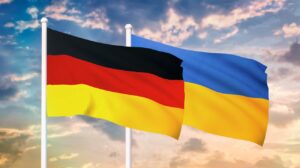
The Kiel Institute for the World Economy reported on Tuesday that military aid to Ukraine fell by 43% in July and August compared with the first half of the year.
According to the institute, most military support now flows through the Prioritized Ukraine Requirements List (PURL) program. That consists of NATO allies from Belgium, Canada, Denmark, Germany, Latvia, the Netherlands, Norway and Sweden.
The PURL initiative replaced U.S. arms donations to Ukraine and now requires allies to pay for U.S. weapons deliveries.
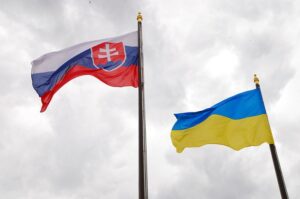
Ukraine and the Slovak Republic have signed an agreement on technical and financial cooperation and a joint roadmap.
On the Ukrainian side, the agreement was signed by Deputy Prime Minister for European and Euro-Atlantic Integration Taras Kachka following joint Ukrainian-Slovak intergovernmental consultations on Friday.
The countries also signed a protocol between the governments on border crossing points across the common state border. On the Ukrainian side, the document was signed by Deputy Prime Minister for the Restoration of Ukraine – Minister of Community and
Territorial Development Oleksiy Kuleba.
In addition, an agreement was signed between the countries on mutual understanding regarding the placement of Ukraine’s diplomatic mission in Slovakia and Slovakia’s diplomatic mission in Ukraine. On the Ukrainian side, the document was signed by Minister of Foreign Affairs Andriy Sibiga.
Prime Minister of Ukraine Yulia Sviridenko and Prime Minister of the Slovak Republic Robert Fico signed an agreement on the exchange of information on labor mobility, as well as a joint roadmap.
As reported, joint Ukrainian-Slovak intergovernmental consultations are taking place on Friday with the participation of Ukrainian Prime Minister Yulia Sviridenko and Slovak Prime Minister Robert Fico.
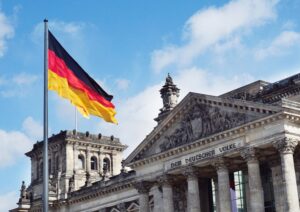
The number of people from Ukraine seeking protection in Germany has increased significantly in recent weeks, Die Welt reported Wednesday.
The publication writes that the lifting of the travel ban for Ukrainian men between the ages of 18 and 22 who are fit for military service has led to an increase in the number of asylum requests from this group.
“The number of applications has risen from around 100 per week before these provisions came into force to around 1,000 per week,” a spokeswoman for the Federal Interior Ministry said.
“It is impossible to assess at this point how temporary this phenomenon is,” she added.
According to the information, the total number of people from Ukraine in Germany increased during the summer. According to the Interior Ministry, 7,961 Ukrainians were distributed through the Free registration system in May, 11,277 in August and 18,755 in September. Unlike asylum seekers, protection seekers from Ukraine are granted a residence permit under Article 24 of the Residence Act, which entitles them to immediate access to the labor market and social services.
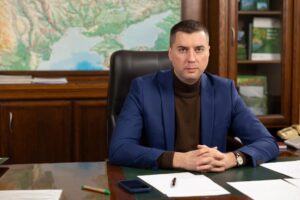
Ukraine will stop clear-cutting of main use in the mountain forests of the Carpathians from 2027 and will switch to selective “re-formation logging”, said the head of the State Agency of Forest Resources of Ukraine Viktor Smal in an exclusive interview with the agency “Interfax-Ukraine”.
“This is a revolution. We have given the industry three years to prepare, train staff and switch to methods closer to natural ones,” he said. According to Smal, the new approach will increase the resilience of ecosystems to climatic and biotic factors and ensure continuous natural regeneration of the forest.
State Forestry Agency: timber stock can grow three times faster with nature-like forestry
The State Agency of Forest Resources of Ukraine is a central executive body coordinating the management, protection, reproduction and rational use of forest resources of the country. The agency supervises more than 70 state enterprises, including the State Enterprise “Forests of Ukraine”, as well as scientific, conservation and inventory institutions.
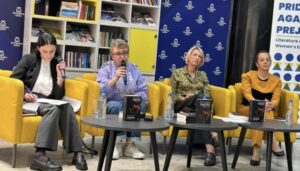
As Serbian Economist reports, the first Ukrainian Literature Festival organized by the Ukrainian Center “Triglav” in cooperation with the Embassy of Ukraine in Serbia took place in the Serbian capital.
The event united Ukrainian writers, translators, literary critics and Serbian fans of Ukrainian culture.
According to the organizers, the goal of the festival is to popularize modern Ukrainian literature abroad and develop cultural dialogue between Ukraine and Serbia.
The festival included readings by Ukrainian authors, presentations of translations into Serbian, panel discussions and meetings with translators working on adapting works by Ukrainian writers for local audiences.
New translations of Ukrainian works into Serbian were presented during the festival. Serbian publishers emphasized that interest in Ukrainian culture has grown significantly after 2022.
https://t.me/relocationrs/1569